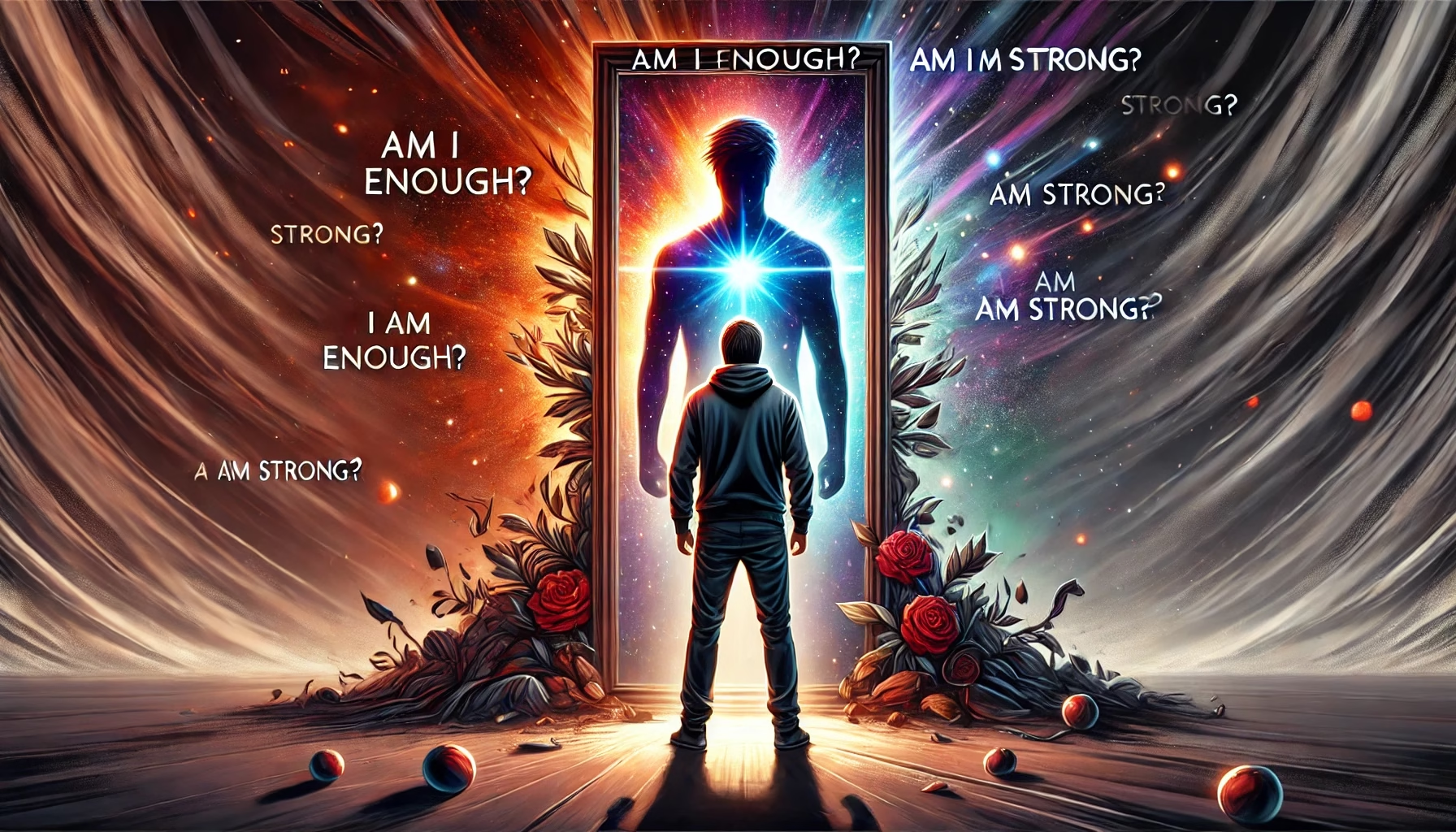There are days when you wake up and feel like everything is against you. The alarm rings, but you snooze it five times because you don’t see a reason to get up. The weight of yesterday’s failures sits on your chest, making it harder to breathe. You look at yourself in the mirror, but instead of seeing someone capable, all you see is a person who is struggling. The mind whispers the same cruel words over and over again: “You’re not good enough.”
People say words have power. They tell you to stand in front of the mirror and say things like, “I am strong,” “I am successful,” “I am worthy.” They say if you repeat it enough times, you will start to believe it. But in that moment, when your own thoughts are loud and unkind, repeating those words feels like a lie. How can saying something change how you feel when deep down, you don’t believe it?
But then, there is another part of you, a tiny voice, almost unheard, that wants to believe. Maybe, just maybe, if you try, something might shift. So you stand there, feeling ridiculous, and say the words anyway. Not because you believe them, but because you desperately want to. The first time, your voice is weak. The second time, there is a little more sound. The third time, you look yourself in the eye, and for a split second, something changes.
Understanding the Silent Battle
But does it really work? Some say it’s just words, that it doesn’t change reality. They argue that standing in front of a mirror and saying, “I am successful,” doesn’t change the fact that you’re struggling to pay rent or failing in relationships. And in many ways, they are right. Words don’t magically change the world around you. But they can change how you see yourself.
There is a moment when the mind is at its weakest—right before sleep, when the day’s regrets crawl in, and early in the morning, when the fears of the day ahead take over. Those are the moments when the mind absorbs everything without questioning it. If, in those moments, the only thing it hears is negativity, then that negativity takes control. But if, in those moments, you whisper something different, something kind, the mind listens too.
It doesn’t happen overnight. It’s not a movie scene where you say something positive once, and suddenly your life changes. It’s a slow process. Some days, you will say the words and feel nothing. Other days, you will say them and feel worse because the mind fights back. But then, there are days when you will say them and, for a moment, believe them. And that moment is enough. Because one moment turns into two, then three, and before you know it, the voice inside your head starts to change.
The Science of Words and Self-Talk
Think about the child who is constantly told that they are not smart enough. They grow up believing it, and that belief shapes their choices, their confidence, their entire life. But if that same child was told every day that they are brilliant, that they can achieve anything, they would grow up with a different mindset. Affirmations work in the same way. They are not magic, but they are training for the mind.
Some people say affirmations don’t work because they tried it for a few days and felt no difference. But expecting immediate change is like going to the gym once and hoping for a perfect body. The mind, just like the body, needs consistent effort. Every single time you say something positive about yourself, even if you don’t believe it yet, you are planting a seed. And with time, those seeds grow.
Affirmations and Mental Resilience
And then, one day, without realizing it, the words that once felt empty start to feel real. You will catch yourself handling situations differently. You will notice that the things that once brought you down don’t affect you the same way. Someone’s criticism won’t shake you as much. A failure won’t feel like the end of the world. The thoughts in your mind will no longer be your enemy. And that is when you will realize that affirmations were never about pretending. They were about creating a new truth.
Practical Ways to Use Words for Change
Does affirmations work? The truth is, it depends on the person. Some people will believe in it and see results. Others will dismiss it and stay trapped in their old thoughts. But for those who are willing to try, who are willing to fight the negativity that has controlled their minds for so long, affirmations can be the beginning of something new.
Not everyone will understand the power of words. But those who do, those who truly commit to changing their inner dialogue, will one day look back and realize that the biggest transformation they ever experienced didn’t start in the world around them. It started in their own mind.
Have you tried using affirmations or positive self-talk in your life? What has your experience been? Share your thoughts and stories in the comments below—your journey might inspire someone else who’s struggling with their inner voice.





